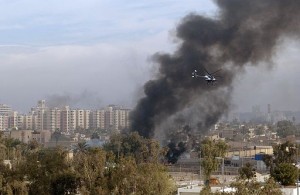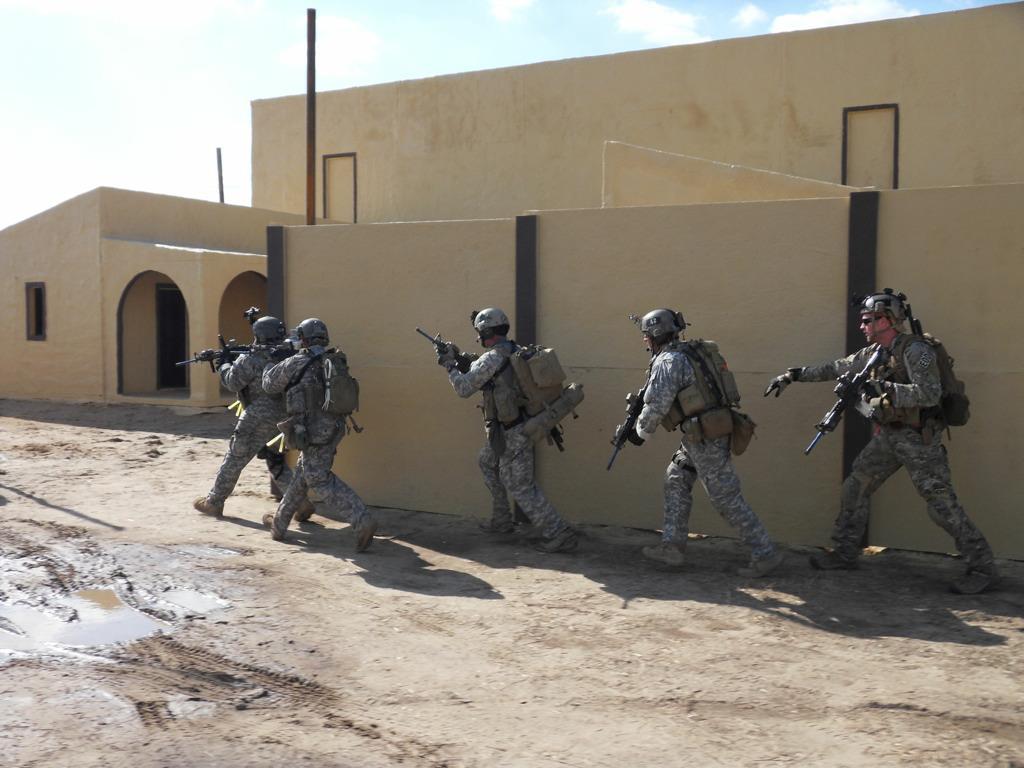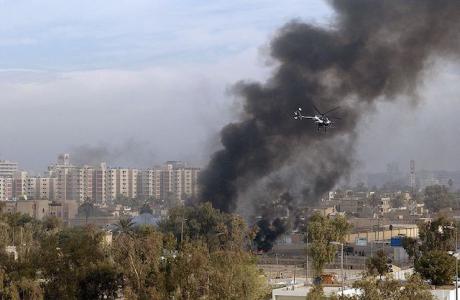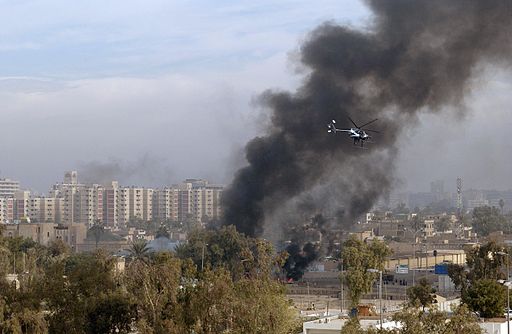
A Blackwater Security Company MD-530F helicopter in Baghdad, Iraq, 2004. Photo by Master Sgt. Michael E. Best (Public Domain)
Here at Occupy World Writes, each of us have topics that fascinate us. One of the topics that fascinate me is the outsourcing of various military and police/security missions and/or duties to create a facade of deniability of responsibility. Back in July, I wrote about the ongoing prosecution and trial of four contractors working for the company then known as Blackwater who were charged with murdering 14 iraqi citizens in Baghdad in 2007. Yesterday, the court ruled.
A jury in the D.C. Federal Court convicted Nicholas A. Slatten of murder, and Dustin L. Heard, Evan S. Liberty and Paul A. Slough of manslaughter and using a machine gun to carry out a violent crime. The machine gun charges carry a mandatory 30 year sentence (which is more than the manslaughter charges have as a minimum), and Slatten faces possible life in prison.
Professor James Stewart, a former UN war crimes prosecutor who followed the case, said; “This was a sensational event: even at the time it happened, people realised there were going to be big implications from the get-go. There was not much doubt whether the attack was legitimate or the firepower excessive, but the trial became a whodunnit: an attempt to convince the jury that each of the men were responsible for each of the killings.”
Ronald C. Machen Jr., U.S. attorney for the District, whose office prosecuted the case, said; “This verdict is a resounding affirmation of the commitment of the American people to the rule of law, even in times of war. Seven years ago, these Blackwater contractors unleashed powerful sniper fire, machine guns and grenade launchers on innocent men, women and children. Today, they were held accountable for that outrageous attack and its devastating consequences for so many Iraqi families.”
The jury took 28 days over two months to come to a verdict, though three of the manslaughter charges against Heard resulted in a hung jury. The defense is expected to appeal the ruling.
So what does this mean over the long haul? Frankly, it sends mixed messages to us. On the one hand, it does define a limit on what is considered acceptable force in future military operations carried out by subcontractors. Professor Stewart said; “I think this trial has reflected well on America. There are not that many countries in the world where a group of men working for the government like this would have been held accountable in a criminal trial back home.”
On the other hand, it’s only the people who carried out the orders who are being held responsible. Erik Prince (Blackwater’s CEO at the time) and other former Blackwater executives are still making profits from their armies for hire. And, what about the Obama administration? When Obama was running for President, he promised to rein in the subcontracted mercenary forces if he were elected. Well, guess what- it hasn’t happened. Jeremy Scahill wrote an excellent piece for The Intercept on this very subject; the lack of accountability for all besides the ones carrying out the order. This one paragraph says it all:
“None of the U.S. officials from the Bush and Obama administrations who unleashed Blackwater and other mercenary forces across the globe are being forced to answer for their role in creating the conditions for the Nisour Square shootings and other deadly incidents involving private contractors. Just as the main architect of the CIA interrogation program, Jose Rodriguez, is on a book tour for his propagandistic love letter to torture, Hard Measures: How Aggressive CIA Actions After 9/11 Saved American Lives, so too is Erik Prince pushing his own revisionist memoir,Civilian Warriors: The Inside Story of Blackwater and the Unsung Heroes of the War on Terror.”
We’ve proven that we can hold the underlings responsible for their actions. When do we find the courage to hold our officials to the same standards?









